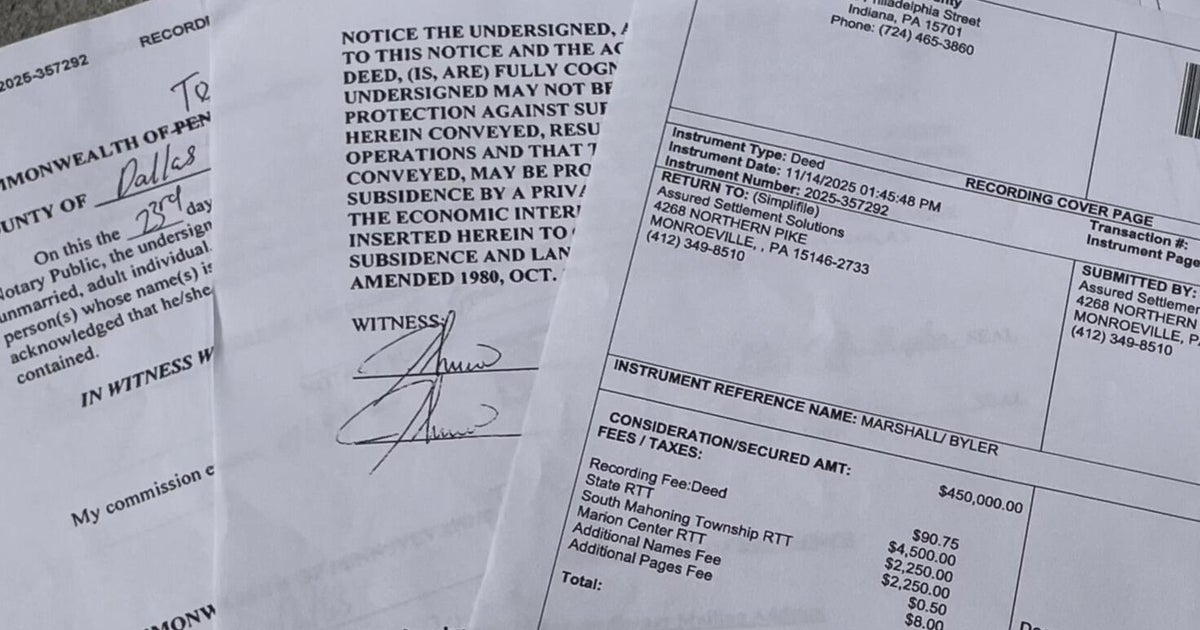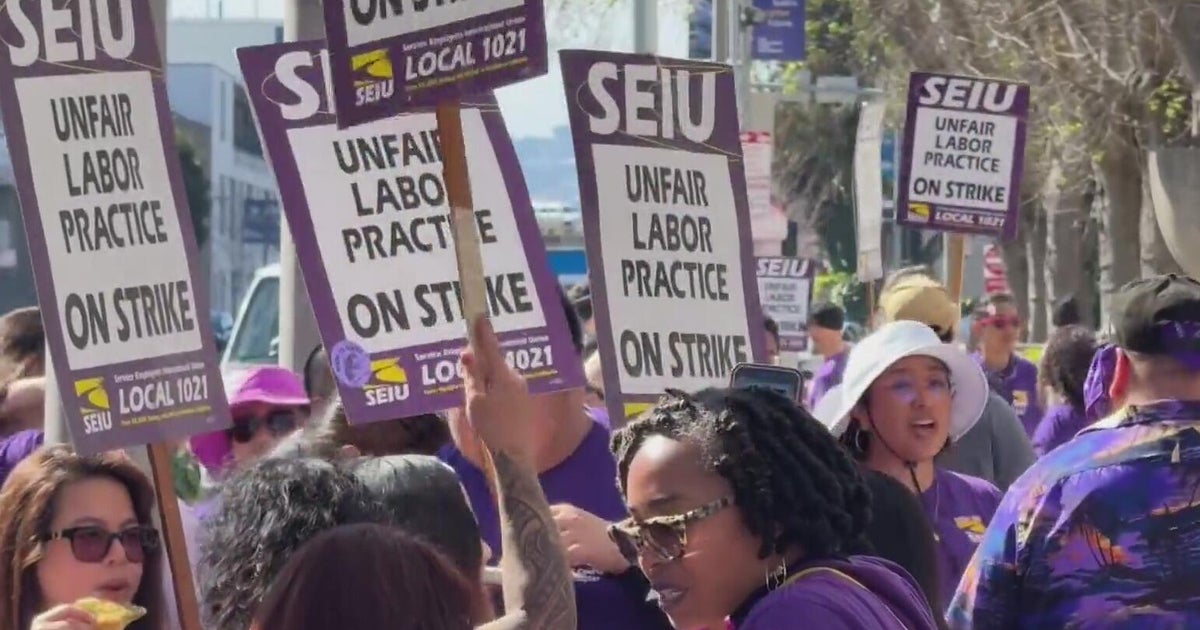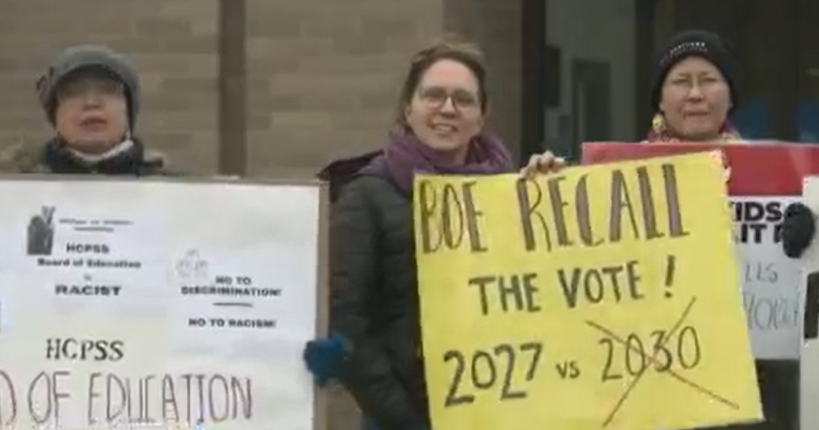San Francisco Tries To Tackle Fraudulent Owner Move-In Evictions
SAN FRANCISCO (CBS SF) -- San Francisco supervisors worked their way toward a possible compromise Monday on legislation intended to curb fraudulent owner move-in evictions but remain divided on how best to enforce the law.
After extensive debate over two competing pieces of legislation Monday the Board of Supervisors' Land Use Committee forwarded legislation by Supervisor Mark Farrell to the full board without recommendation and tabled legislation by Supervisors Aaron Peskin and Jane Kim.
The legislation forwarded to the board was amended to incorporate much of Peskin and Kim's version, but Farrell continued to object to key enforcement provisions in their legislation that tenant advocates have argued are crucial to make the law stick.
Specifically, the Peskin/Kim legislation calls for buyout agreements to be invalidated if the owner fails to comply with the law, and allows nonprofits to sue landlords found to have evicted tenants fraudulently if the city attorney chooses not to act.
"I do have real concerns about that specific provision creating more frivolous lawsuits," Farrell said.
Peskin called the disagreement a "philosophical difference" for the full board to decide. He noted that a similar law allowing nonprofits to sue hotel owners converting from residential occupancy to tourist uses had been highly successful in curbing violations of the city's SRO ordinance.
"Enforceability is really the key to this," Peskin said, arguing that the private right of action is the only way to guarantee a mechanism for enforcement.
Under state law, property owners are allowed to evict tenants if they plan to live in a residence themselves or to have a family member live there.
Once they do so, they are required to keep the unit off the rental market for at least three years.
If they return it to the rental market, the original tenant has the right to re-rent it at the same rent plus any allowable increase or seek legal action against the landlord.
In practice, however, there is little enforcement of this requirement and reports of fraud, with landlords returning the property to the market for much higher rents, are widespread. Tenants rarely have the resources to pursue legal action.
Figures released by the San Francisco Tenants Union and the Anti-Eviction Mapping Project showed that in 48 percent of the cases where tenants consulted with the tenants union on owner move-in evictions, the owners had failed to file the required paperwork with the rent board.
The largest number of owner move-in evictions occurred in the city's District 8, which includes neighborhoods such as the Castro District, Glen Park and Noe Valley, the data showed. Of the tenants affected, 39 percent had lived in their homes for 10 years or more.
Both pieces of legislation discussed would require property owners to sign a declaration under oath that they will comply with all eviction laws, and also to regularly file paperwork demonstrating that they or a relative occupy the unit during subsequent years.
While Farrell's legislation did not initially make failure to comply with the law, as Peskin and Kim's legislation does, he has since incorporated that provision.
Farrell's legislation also included a longer statute of limitations, of five years rather than three, but Peskin said he was happy to adopt that provision.
Farrell's legislation also incorporated a provision in Peskin and Kim's that landlords would be charged a penalty $250 for the first failure to file paperwork for an owner move-in eviction with the city rent board.
Subsequent violations would be fined $1,000 each.
The Board of Supervisors is expected to vote on the owner move-in legislation at Tuesday's meeting.
© Copyright 2017 by CBS San Francisco and Bay City News Service. All rights reserved. This material may not be published, broadcast, rewritten or redistributed.







